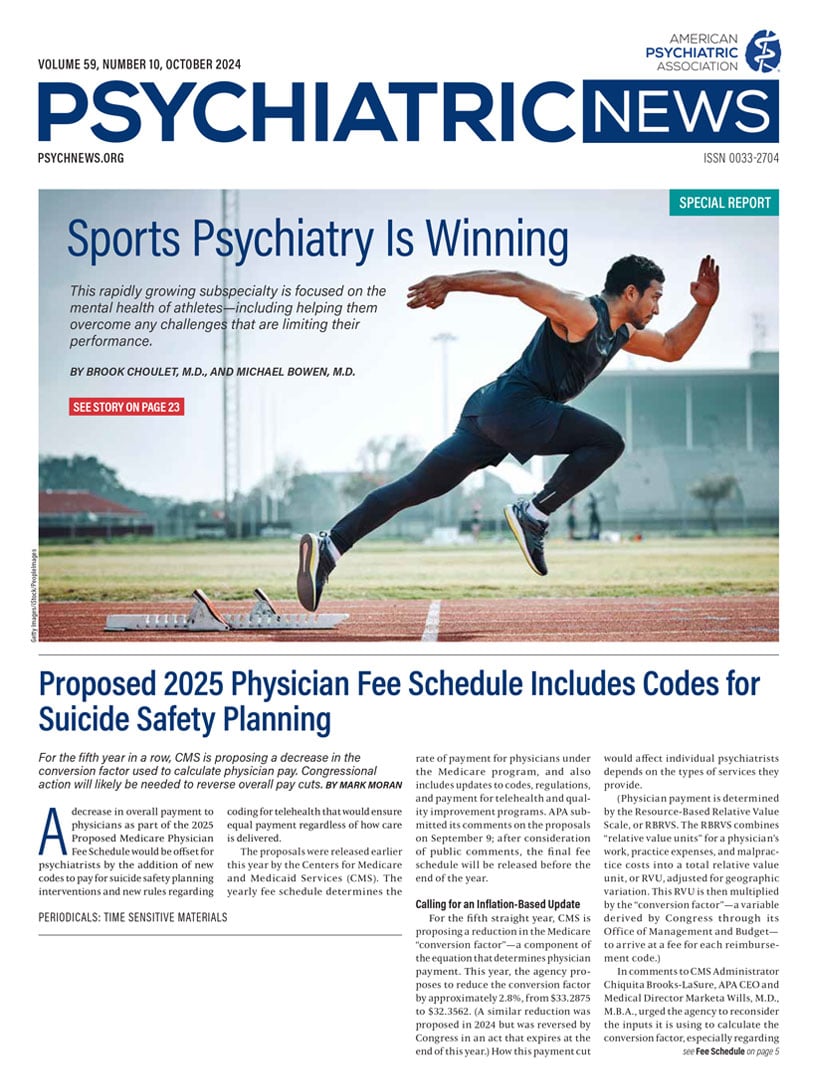The United States faces a shortage of psychiatrists and an increasing demand for psychiatric services—and residents under the supervision of attending physicians play a key role in addressing this gap now and in the future. While traditional supervision models relied on physical proximity and presence, creating logistical hurdles and limiting access to care, particularly in rural and urban underserved areas, remote supervision of residents via videoconferencing was permitted in response to COVID-19.
As the potential continuation of remote supervision is being considered, it is imperative to publicly advocate for these changes to become permanent. This will optimize resident training, enhance patient access, and improve the quality of care.
The supervision of residents when trainees and others are remote has proven to be comparable to in-person supervision, according to several studies. Limiting the sites from which a clinician can provide patient care or supervision exacerbates existing workforce shortages, while remote work allows attending physicians and trainees to remain in the workforce at life stages when it might otherwise be inconvenient or impossible, such as new parenthood, elder care, and mobility challenges.
Remote Supervision Benefits
Increased access to care: Telesupervision allows attending physicians to simultaneously supervise multiple residents in remote and potentially disparate locations. This enables more residents to work in mental health professional shortage areas and expands the pool of supervising attendings and the sites where care is delivered. Residents also benefit from a wider pool of supervisors and access to a greater variety of patients.
Improved training efficiency: Telesupervision allows for greater flexibility in scheduling and increased access to peer consultation, enhancing residents’ intervention, professional, and conceptual skill development, as well as their effective problem solving. Telehealth also allows for centralized supervision of residents across multiple clinics, optimizing attending physicians’ time and expertise.
Cost effectiveness: Telesupervision reduces travel costs for residents, attending physicians, and patients, which enables residency programs to make use of a wider pool of qualified attending physicians and potentially reduces some of the costs of training.
Enhanced patient care: By enlarging the potential pool of attending physicians, telesupervision improves access to prompt, real-time consultation during patient encounters, resulting in improved care and better-informed decisions. Residents benefit from immediate feedback—and the wider pool of qualified attendings gives them access to attendings with expertise they otherwise might not have.
Medicare Reimbursement
Telesupervision of residents is a win-win for patients and the health care system—increasing access to care, enhancing training, and improving care quality. Medicare reimbursement for telesupervision in outpatient psychiatry clinics is vital for its sustainability, because without proper reimbursement, clinics cannot invest in the necessary technologies and training. It goes without saying that reimbursement policies should be evidence-based and fair.
At the beginning of the pandemic, the Centers for Medicare and Medicaid Services (CMS) allowed telesupervision through audio and video technology, instead of only in-person, whether or not the resident was providing a telehealth service or an in-person service. In its final rule for the 2024 Physician Fee Schedule, CMS made two determinations in relation to telesupervision of residents:
1.
CMS will continue to allow virtual supervision when the patient, resident, and teaching physicians are in three different locations through December 31, 2024.
2.
Beginning December 1, 2024, CMS will no longer allow virtual supervision when the teaching physician is remote but the resident and patient are onsite unless it is located outside of a metropolitan statistical area (MSA).
The first determination should not stand; the continued allowance for virtual supervision when the patient, resident, and teaching physicians are in three different locations should be made permanent. Likewise, virtual supervision when the teaching physician is remote but the resident and patient are onsite should be allowed permanently, regardless of whether the site is outside of an MSA. Rural and urban underserved populations and trainees nationally deserve better and would significantly benefit.
In this way, we can truly realize the advantages offered by this innovative approach. ■
